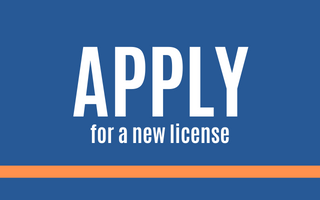
The requirements for Illinois real estate licenses are important to know. These include the Exam as well as the requirements for a license and the requirements to become a leasing agent. Learn more about how to apply for your license. You'll also find out how much you need to pay to obtain your license.
Exam requirements
The Illinois real property licensing exam is a multiple choice exam. It consists of two parts. There are a national exam and a state-specific exam. Each test has around 140 questions. Five of these are experimental questions. Each section has different difficulty levels. 75 marks are required to pass each section. It takes approximately four hours to complete the exam. It is crucial to prepare as much for the exam.

Pre-licensing courses of approximately 90 hours include 75 hours of textbook study and 15 hours of online learning. There are many kinds of programs that you can choose from: daytime classes, evening classes, or fast-paced. Self-study courses are also available. To obtain a Illinois real estate license, self-study courses require a minimum score.
Requirements for a Leasing Agent license
You must have the following requirements in order to become a Illinois-licensed leasing agent. First, you need a broker’s license. This license allows landlords and tenants to be represented. This allows you to work as an agent in real estate and to lease residential property.
The state requires that a leasing agent be licensed. Pre-test questions, scenario questions, as well as scored questions are all part of the exam. To be licensed as a leasing agent in Illinois, you need to score at minimum 75 percent. It takes approximately two and a quarter hours to complete the exam.
Steps to apply Illinois real estate license
Before you can start real estate practice in Illinois, you will need to get a license from the Division of Real Estate. The state requires applicants must complete a pre-license education course within two years, and pass the state’s exam, administered through PSI. A sponsoring managing broker is required for all applicants to a license. The sponsoring broker must sponsor each applicant's application for a license.

The Illinois real-estate licensing process can take from three to six month. You must take a 75-hour course in real estate from an accredited school before you can be licensed. You can try an online free trial course to help you decide which school to choose.
FAQ
Can I purchase a house with no down payment?
Yes! There are programs available that allow people who don't have large amounts of cash to purchase a home. These programs include FHA, VA loans or USDA loans as well conventional mortgages. More information is available on our website.
What should you think about when investing in real property?
First, ensure that you have enough cash to invest in real property. You will need to borrow money from a bank if you don’t have enough cash. Also, you need to make sure you don't get into debt. If you default on the loan, you won't be able to repay it.
It is also important to know how much money you can afford each month for an investment property. This amount must include all expenses associated with owning the property such as mortgage payments, insurance, maintenance, and taxes.
It is important to ensure safety in the area you are looking at purchasing an investment property. It would be best to look at properties while you are away.
Is it possible sell a house quickly?
If you plan to move out of your current residence within the next few months, it may be possible to sell your house quickly. However, there are some things you need to keep in mind before doing so. First, find a buyer for your house and then negotiate a contract. You must prepare your home for sale. Third, your property must be advertised. Lastly, you must accept any offers you receive.
What should I do before I purchase a house in my area?
It depends on how much time you intend to stay there. Start saving now if your goal is to remain there for at least five more years. If you plan to move in two years, you don't need to worry as much.
Should I use a broker to help me with my mortgage?
Consider a mortgage broker if you want to get a better rate. Brokers work with multiple lenders and negotiate deals on your behalf. Some brokers do take a commission from lenders. Before signing up for any broker, it is important to verify the fees.
Should I rent or purchase a condo?
If you plan to stay in your condo for only a short period of time, renting might be a good option. Renting saves you money on maintenance fees and other monthly costs. On the other hand, buying a condo gives you ownership rights to the unit. You can use the space as you see fit.
How can I find out if my house sells for a fair price?
If your asking price is too low, it may be because you aren't pricing your home correctly. A home that is priced well below its market value may not attract enough buyers. Our free Home Value Report will provide you with information about current market conditions.
Statistics
- The FHA sets its desirable debt-to-income ratio at 43%. (fortunebuilders.com)
- It's possible to get approved for an FHA loan with a credit score as low as 580 and a down payment of 3.5% or a credit score as low as 500 and a 10% down payment.5 Specialty mortgage loans are loans that don't fit into the conventional or FHA loan categories. (investopedia.com)
- This means that all of your housing-related expenses each month do not exceed 43% of your monthly income. (fortunebuilders.com)
- Based on your credit scores and other financial details, your lender offers you a 3.5% interest rate on loan. (investopedia.com)
- Private mortgage insurance may be required for conventional loans when the borrower puts less than 20% down.4 FHA loans are mortgage loans issued by private lenders and backed by the federal government. (investopedia.com)
External Links
How To
How to Purchase a Mobile Home
Mobile homes are houses constructed on wheels and towed behind a vehicle. They have been popular since World War II, when they were used by soldiers who had lost their homes during the war. Today, mobile homes are also used by people who want to live out of town. These homes are available in many sizes and styles. Some houses are small while others can hold multiple families. There are even some tiny ones designed just for pets!
There are two types main mobile homes. The first is made in factories, where workers build them one by one. This process takes place before delivery to the customer. You can also build your mobile home by yourself. The first thing you need to do is decide on the size of your mobile home and whether or not it should have plumbing, electricity, or a kitchen stove. Next, make sure you have all the necessary materials to build your home. To build your new home, you will need permits.
If you plan to purchase a mobile home, there are three things you should keep in mind. First, you may want to choose a model that has a higher floor space because you won't always have access to a garage. A larger living space is a good option if you plan to move in to your home immediately. You'll also want to inspect the trailer. Problems later could arise if any part of your frame is damaged.
Before you decide to buy a mobile-home, it is important that you know what your budget is. It is important to compare the prices of different models and manufacturers. Also, consider the condition the trailers. Although many dealerships offer financing options, interest rates will vary depending on the lender.
It is possible to rent a mobile house instead of buying one. You can test drive a particular model by renting it instead of buying one. However, renting isn't cheap. Renters usually pay about $300 per month.